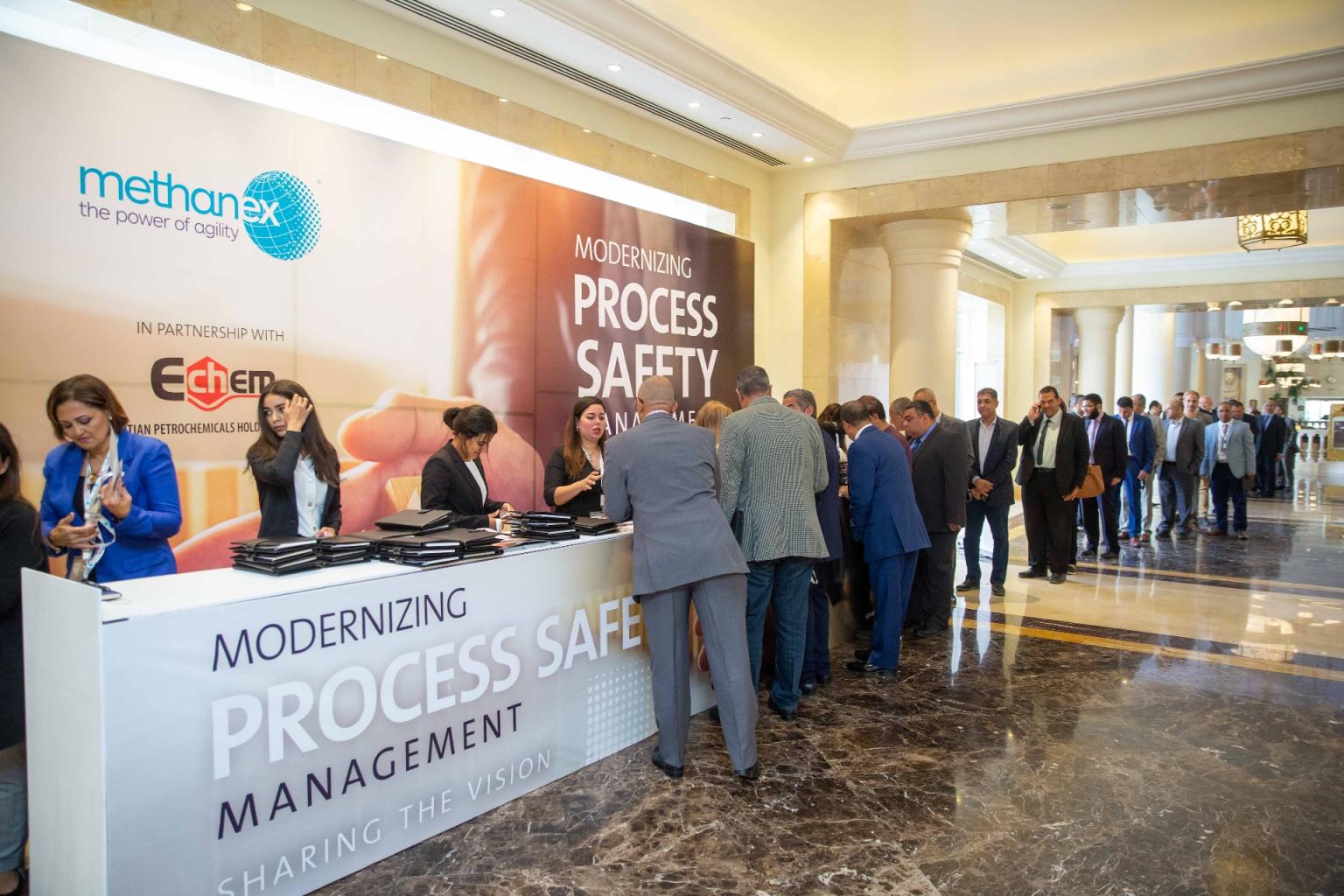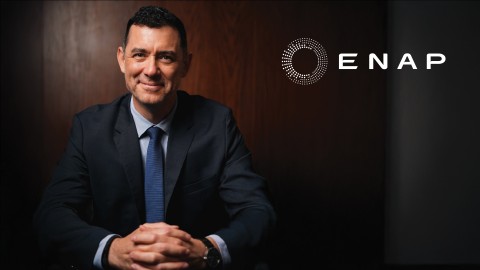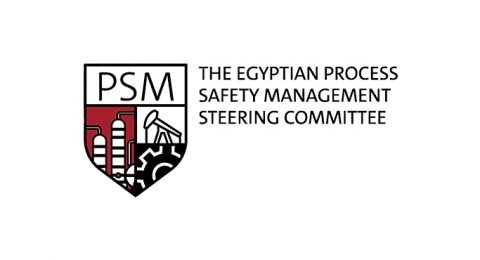Just weeks before COVID-19 emerged as a global pandemic, in February 2020, Methanex Egypt and the Egyptian General Petroleum Corporation (EGPC), signed a Memorandum of Understanding (MoU), in the presence of H.E. Eng. Tarek El-Molla Minister of Petroleum and Mineral Resources, enabling collaboration between the company and the ministry to embed the culture of Process Safety Management (PSM) within the Egyptian oil, gas and petrochemicals sector, in alignment with the ministry’s Modernization Program.

Despite the global pandemic, the signatories of the MoU forged ahead with the execution of the ambitious roadmap, and the meetings of the Process Safety Management Steering Committee, comprising members from the Ministry of Petroleum, the Egyptian Petrochemicals Holding Company (ECHEM), EGPC, Egyptian Natural Gas Holding Company (EGAS) and Ganoub El Wadi Petroleum Holding Company (Ganope), continued regardless. Egypt Oil and Gas met with Mr. Mohamed Shindy, Methanex Egypt’s CEO and Mr. Mourad Hassan, Methanex Egypt’s Responsible Care (HSEQ) Manager to understand more about PSM, the significance of the recently signed MoU and the progress of the Egyptian PSM Steering Committee.
“PSM is a set of interrelated principles for managing the hazards associated with process industries. These principles are designed to reduce the frequency and potential severity of process incidents that could result from the accidental release of hazardous fluids (oil, gases, chemicals) and other energy sources,” Hassan explained.
The goal of PSM is to ensure mitigations are in place to prevent accidents that can cause serious harm to people, environment and assets. “The impact of a PSM event is significant for the working teams, society, corporations and governments. The potential loss resulting from such an event is not only financial, but the people impact, the environmental damage, the legal cases and the overhaul work is great – I can tell you that having lived through a number of those situations myself,” Hassan said. Examples of historic PSM events offshore and onshore include Piper Alpha offshore platform explosion and oil spill in the North Sea, Exxon Valdez oil spill in Alaska, Texas City explosion in the USA, Esso Longford gas explosion in Australia, Bhopal gas release in India, etc. In many of those incidents, the impact and damage are irreversible.

According to Shindy, the company has been on its own journey of embedding PSM within its organization globally and in Egypt. “We wanted to share the lessons we learnt on our journey with the wider sector, so we reached out to Chemist Saad Helal, the Chairman of ECHEM in 2018, with the proposal to partner in launching the first PSM workshop and conference. His enthusiasm matched ours – there was clear need to start a wide dialogue about this critical topic,” Shindy says. The success of the first workshop led to the second conference taking place in September 2019, encouraged by the minister who highlighted the need for all companies to follow PSM during last year’s Safety Week.

The events brought together hundreds of participants from across the Egyptian petrochemical, oil and gas sector companies, in addition to world-renowned speakers who introduced PSM, shared case studies and started a wide discussion about the topic. The next natural step was the creation of a PSM Steering Committee to take the discussion to a deeper level, and to enable the implementation of a three-year roadmap towards the adoption of PSM within all the companies operating under the umbrella of the Ministry of Petroleum and Mineral Resources’ holding companies aimed at institutionalizing PSM within the industry in accordance with the ministry’s Modernization Program and international best practices, guidelines and standards.
This was formalized during the Egypt Petroleum Show (EGYPS 2020) conference, through the signing of the MoU between Methanex Egypt and EGPC. “The MoU is a truly crowning achievement of two years’ worth of collaborative work between multiple organizations who formed the founding core for creating an Industry PSM Committee and is part of our strong commitment to PSM,” Shindy said.

The MoU enables the development of a plan to identify the status of the MoP companies’ PSM maturity, the PSM program procedures based on the US Center for Chemical Process Safety (CCPS) and a Hazard Management program set of guidelines, including but not limited to; Safety Case, Process Safety Major Accident Prevention Policy, etc. The committee will also identify PSM Key Performance Indicators for companies’ performance management. In addition, it will suggest a PSM organizational structure to be applied at the Ministry of Petroleum and Mineral Resources and its affiliated companies including roles and responsibilities for the job profiles and a competency framework. The committee will also lead the communication within the industry in the form of workshops, conferences, publications, etc.

One significant mandate has been the creation of the PSM technical sub-committee under the leadership of the Egyptian Process Safety Management Steering Committee. This sub-committee’s role is the implementation of the recommendations from the Egyptian Process Safety Management Steering Committee through a formal mandate. This committee will utilize the support of the Ministry of Petroleum’s Capacity Building candidates in a meaningful manner to enhance their skills and progress their development. The role includes the execution of the PSM Road Map, thorough company PSM baseline review, development of PSM procedures (e.g. Management of Change, PSM Roles & Responsibilities, Organization Capability, Risk Management, Key Performance Indicator and PSM Performance Management, etc.) and Major Hazard Management guidelines.

The meetings of the PSM committee continued to take place online as scheduled over the past seven months despite the challenges of COVID-19, thanks to the dedication of the committee members and their commitment to expediting the journey towards safer processes within the sector, ensuring adherence to the timeline proposed within the MoU.
The Egyptian PSM Steering Committee members are:
– Osama Nour El Din – HSE Undersecretary for the Minister of Petroleum and Natural Resources – MOP
– Gamal Fathy Mohamed – HSE Chairman Assistant – EGPC
– Osama Abdou Ahmed Hassanin – HSE General Manager – EGPC
– Mohamed Mahmoud Zaki – Executive Vice President, Operations – ECHEM
– Salah El Din Riad – Q&HSE Chairman Assistant – ECHEM
– Ahmed Ali Hassan Akrab – Safety General Manager – ECHEM
– Mohamed Shindy – Managing Director – Methanex Egypt
– Manal El Jesri – Public Affairs Manager – Methanex Egypt
– Amr Moawad Hassan – PSM Consultant – Methanex Egypt
– Mourad Maged Hassan – Responsible Care (QHSE & PSM) Manager – Methanex Egypt
– Sameh Sayed Abdel Razek – Occupational Health & Safety Chairman Assistant – EGAS
– Emad Kilany – HSE Assistant General Manager – EGAS
– Mohamed Sayed Suliman – HSE General Manager – Ganope









